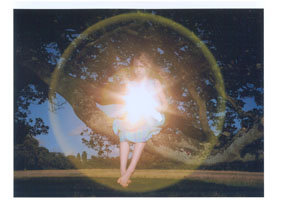Adrian Paci
dal 2/4/2007 al 12/5/2007
Segnalato da
2/4/2007
Adrian Paci
MK Gallery, Milton Keynes
"Per speculum" represents a marked shift from the preoccupations of Paci's earlier films. This time the film is not based on real circumstance, instead, its fictional, lyrical, slow moving plot brings together a number of strands that have surfaced in earlier films, including childhood, human knowledge and light.

Per speculum
Adrian Paci has become internationally recognised as an artist whose work often
engages with real people in real-life situations to address the themes of exile,
dislocation and loss. He will have his first solo exhibition in the UK at Milton
Keynes Gallery this April, revealing the depth of his work, in film, sculpture,
drawing and painting.
Adrian Paci was born in Albania, the country from which he sought exile in the mid
1990s. Since leaving and settling in Italy, his films have addressed the political
and personal changes that have taken place in Albania and his own experiences. Many
of his films have involved his family and friends, and men from the town in which he
grew up, providing insight into the adjustments that they have had to make in coming
to terms with their new situation. Art and life have until recently been
interchangeable, as Paci has used his practice to understand his own role in society
and what might be expected of him as an artist. Rather than providing the viewer
with a nostalgic glance at the life that was left behind, Paci presents people that
are trying to come to terms with how it is now.
per speculum, 2006 (commissioned and produced by Milton Keynes Gallery and Galleria
Francesca Kaufmann, Milan) represents a marked shift from the preoccupations of
Paci's earlier films. This time the film is not based on real circumstance, instead,
its fictional, lyrical, slow moving plot brings together a number of strands that
have surfaced in earlier films, including childhood, human knowledge and light. It
is also Paci's first to be screened on 35mm. per speculum was filmed on location in
the Northamptonshire countryside and sees a group of children playing with a mirror
that is shattered into pieces which are then used to reflect the sun as they sit in
the boughs of an enormous tree, so that it glistens with sparks of light. The
shimmering light alludes to a passage from St Paul's First Letter to the
Corinthians: 'videmus nunc per speculum in aenigmate tunc autem face ad faciem'
(13:12) - At present we see indistinctly, as in a mirror, but then face to face. At
present I know partially; then I shall know fully, as I am fully known, which is
also from where Paci's takes his title. As the light is reflected back onto the
audience, Paci raises the notion of the possibilities and limits of knowledge and
the way that we approach and use it.
Religion has been significant in other areas of Paci's practice: PilgrIMAGE, 2005
follows the story of a religious painting entitled The Virgin Mary of Shkodra that
disappeared in Albania and reappeared in Rome in the 16th century. Dedicated to the
filmmaker Pier Paolo Pasolini, is the Pasolini Chapel, 2005, which will form part of
this exhibition. Painted film stills (gouache on wood) from Pasolini's films The
Gospel According to St Matthew, 1964, and Mamma Roma, 1962 adorn the inner and outer
walls of a small hut placed in the middle of the gallery. The Gospel According to St
Matthew was highly controversial and showed Christ as a young revolutionary while
Mamma Roma was full of allusions to religious stories. The sepia-like paintings
depict important silent scenes from each film, and this work, shown alongside
paintings of scenes in Pasolini's The Decameron, 1971, bring together Paci's avid
fascination with the relationship between painting, photography and the cinematic
tradition.
It is Paci's practice to capture photographs from the films that he makes and
exhibit them alongside the films. Again, the significance of light in Paci's work is
brought into focus, as visitors will have the opportunity to see images from Turn
On, 2004, which features a group of men from Paci's home town Shkodra, playing with
the effects of light and dark, as they consider their changed lives. The images will
be accompanied by photographs from other works, including images taken on the set of
per speculum.
A full colour catalogue, with contributions from Christy Lange, Assistant Editor of
Frieze and Michael Stanley, Director of Milton Keynes Gallery, as well as a range of
events, will accompany this exhibition.
Events
Artist in Conversation
Thursday 5 April, 7-8pm, £5 (£3)
Adrian Paci in conversation about the themes and influences in his practice.
Look Who's Talking
Saturday 5 May, 1-1:30pm
See local children and their families who were involved in the making of Paci's per
speculum interviewed in a short film about their experiences of working with Paci
and their impressions of the completed film, followed by a short question and answer
session.
In Context: Art and Film (2)
Wednesday 18 April, 7-8pm
In this panel discussion a new media curator, an advertising executive, a cameraman
and a film critic will consider the crossovers between fine art film making and
commercial film and advertising.
Preview: 3 April, 5:30-8pm
Milton Keynes Gallery
900 Midsummer Boulevard - Milton Keynes



